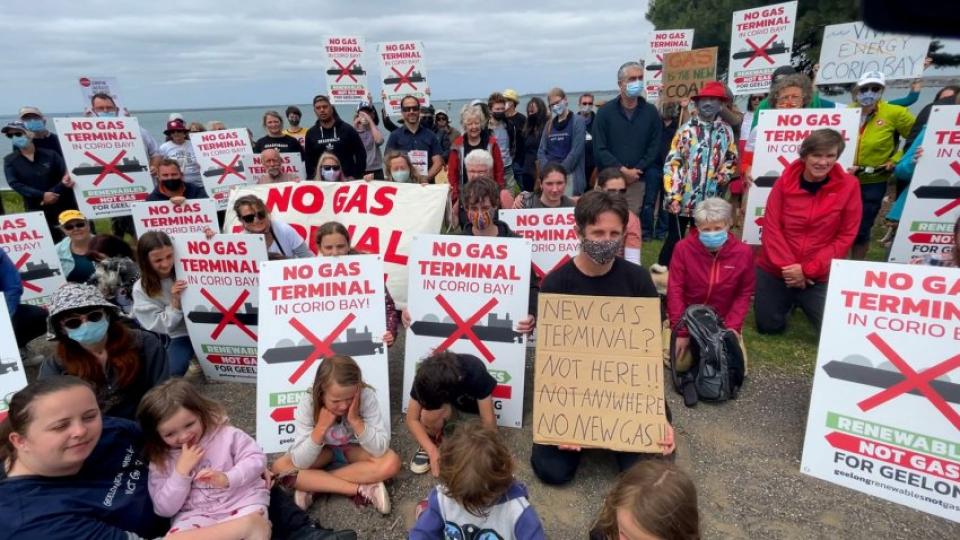The ‘gas crisis’ is a fraud

While none of us want to pay higher energy bills, further investigation reveals that the current “gas crisis” is really an environmental and economic fraud.
Gas is not a transitional fuel: it is a fossil fuel contributing significantly to climate change and has no place in a clean energy future.
The Intergovernmental Panel on Climate Change claimed in its April report that the world has to cut greenhouse gas emissions by 2025 to be able to avoid the worst impacts of climate change.
The gas crisis claim is being made as Australia experiences its worst floods in recorded history and after its worst ever bushfires during the Black Summers of 2019 to 2020. Climate change is behind these emergencies.
Climate was considered to be a defining issue at the federal election: the vote for the Australian Greens has never been higher and climate-concerned “teal” candidates thrashed more moderate Liberal Party ones.
Clearly, whether the incoming Labor government wants it or not, it has a mandate for radical, progressive change to save the climate.
When United Nations secretary general António Guterres said “increasing fossil fuel production will only make matters worse”, one could be forgiven for thinking that none of the two major parties’ MPs were listening.
New resources minister, Madeleine King, confirmed that Labor will support Western Australia’s $16.5 billion offshore Scarborough gas project, and will not back a ban on new fossil fuel projects.
The Coalition’s new leader, Peter Dutton, came up with a brainwave: ignoring the dangers of the nuclear industry and the 20 years it takes to start this dinosaur up, he’s rediscovered nuclear energy and wants to begin a debate on its use.
Hopefully we can discard the nuclear red herring debate, but we can’t with the one about gas.
Currently most of us, at least those on the East Coast, are facing unaffordable gas and electricity bills.
Every day we are being told that a gas shortage is pushing prices up astronomically and the coal industry is also failing because it has been run down in favour of renewables.
These claims are fraudulent.
There is no gas shortage in Australia; the country exports most of its gas and is the fifth largest gas exporter in the world. Four companies — BHP-Exxon, Shell, Santos and Origin — are making multi-billion dollar profits from its export.
Prices need not go up if the government was prepared to make these companies give back a reasonable share to the domestic market, or else nationalise them and the coal companies which are anyway not reinvesting in coal as bigger profits are to be made elsewhere.
It appears that, given its belief in market solutions, its support for Woodside’s Scarborough gas project off the Pilbara coast and its timidity in confronting the big energy corporations, the new Labor government will fall at its first hurdle.
As Michael West and Callum Foote said in Michael West Media on June 4: “It’s a tired old neo-liberal mantra, a false narrative peddled by gas lobby toadies in the financial press, because there is no ‘market’ only a cartel of four powerful gas producers holding a nation to ransom.”
They go on to criticise both major parties for championing huge taxpayer subsidies for gas corporations, which pay large financial donations to each party in return.
Meanwhile, the ABC’s business editor Ian Verrender put it like this: “Australia is one of the best endowed nations on earth … [with] an environment and landscape that is ideal for the new world of renewable energy required to power the globe.”
Australia should have been producing publicly-owned renewable energy on a large scale decades ago, if not for stupid, vested-interest debates, led by climate deniers such as former Prime Minister Tony Abbott, which retarded that transition.
However, where campaigns against the introduction of new gas production are being fought, there is evidence of progress.
The Australian Conservation Foundation Geelong Renewables Not Gas campaign is trying to stop Viva Energy from setting up a gas import terminal in Corio Bay. Campaigners argue that the terminal is environmentally unsound and unsafe.
Consequently, some 2000 submissions have been made to a state planning panel, which also hosted public hearings as part of the approval process. Only a tiny number were in favour of the terminal.
This is in a situation where the demand for gas in Victoria — the biggest gas-guzzling state — is set to decline. According to the Australian Energy Market Operator, gas consumption across the country, has already dropped by 21% since 2014.
Meanwhile, the impact of the anti-gas campaign in Geelong can be seen in the Murdoch-owned Geelong Advertiser. Its June 3 editorial argued: “If we are really going to tackle climate change, and not just talk about it, we need to start to rapidly reduce our reliance on gas. Not seek out more of it … surely the addition of more supply must come from renewable.”
If a conservative local newspaper can be won to support the community’s push for renewable energy, it’s clear we have to continue to push the new Labor government to agree that a safe climate cannot involve gas.
[Sue Bull is a member of the Socialist Alliance national executive. She is also active in the Geelong Renewables Not Gas campaign.]